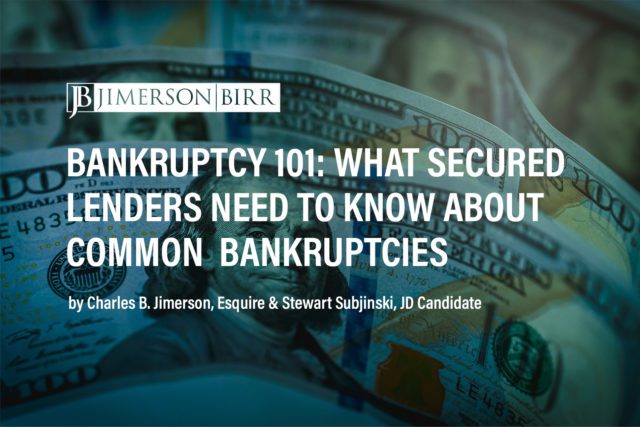What does commercial reorganization encompass?
Florida and federal laws, such as Chapter 11 of the United States Code and Chapter 727 of the Florida Statutes, govern the impact of commercial reorganization on creditors. In general, commercial reorganization aims to allow a struggling business to restructure its debts and continue operations. Creditors can be affected in various ways during this process, such as altering the terms of their claims or the possibility of receiving partial payments.
For example, a debtor may propose a reorganization plan that alters the repayment terms, such as extending the repayment period, reducing interest rates, or converting unsecured debt into equity. Creditors may vote on the proposed plan, but the court may still confirm it even if not all creditor classes accept it. Sometimes, secured creditors may be subject to a “cramdown,” where the court approves a reorganization plan over their objections.
Need a bankruptcy law advocate? Schedule your consultation today with a top bankruptcy and restructuring attorney.
Which Florida laws and regulations apply to commercial reorganization?
The primary laws and regulations that apply to the impact of commercial reorganization on creditors in Florida are the federal Bankruptcy Code, specifically Chapter 11, and the state-level Florida Statutes, Chapter 727. While Chapter 11 deals with the reorganization of businesses under federal law, Chapter 727 focuses on state-level regulations for business reorganization.
Additionally, specific provisions within the Florida Uniform Commercial Code may apply to secured transactions, such as the rights and responsibilities of secured creditors in a commercial reorganization.
How does commercial reorganization connect to the bankruptcy process?
Under state and federal bankruptcy regulations, businesses can restructure their debts to continue operations, which affects their creditors. This restructuring, typically through a reorganization plan, may alter repayment terms, prioritize some creditors over others, or convert unsecured debt into equity.
The connection between commercial debtor reorganization and bankruptcy legal services for creditors lies in protecting creditors’ rights during the reorganization process. Creditors need legal representation to protect their interests and maximize their recovery. In the context of Chapter 11 bankruptcy, creditors play a crucial role in approving or objecting to the debtor’s reorganization plan, and their input can influence the case outcome. Additionally, bankruptcy legal services for creditors help ensure that the debtor complies with the requirements and disclosures throughout the reorganization process.
When a set of facts is appropriate for bankruptcy services, there are many paths a claimant may take. We are value-based attorneys at Jimerson Birr, which means we look at each action with our clients from the point of view of costs and benefits while reducing liability. Then, based on our client’s objectives, we chart a path to seek appropriate remedies.
To determine whether your unique situation may necessitate litigation or another form of specialized bankruptcy advocacy, please contact our office to set up your initial consultation.
What legal risks do creditors face during commercial reorganization?
Creditors may face the following:
- Potential reduction in claim value: Due to debt restructuring, the reorganization plan may change the repayment terms or convert unsecured debt into equity. This conversion may result in a lower recovery for the creditor than initially expected.
- Cramdown: The bankruptcy court could approve a reorganization plan over the objections of certain creditor classes. The court may impose the plan if it deems it fair and equitable, even if some creditors oppose it. In these cases, creditors may receive less favorable terms than they anticipated.
- Preference actions: The bankruptcy trustee or debtor-in-possession can recover certain payments made by the debtor to the creditor within 90 days before the bankruptcy filing. This recovery intends to ensure the equitable distribution of assets among all creditors. However, this action may require creditors to return payments they received during that time.
- Inadequate disclosure or fraud by the debtor: These debtor issues impact creditors’ ability to make informed decisions during the reorganization process. Creditors must rely on the debtor’s financial statements, schedules, and other disclosures to assess the debtor’s financial position and evaluate the feasibility of the proposed reorganization plan. If the debtor’s information is inaccurate or incomplete, creditors may face difficulty protecting their interests.
Please contact our office to set up your initial consultation to see what forms of legal protection and advocacy may be available for your unique situation.
How should bankruptcy counsel facilitate commercial reorganization?
Counsel should consider the following to protect their clients:
- Active participation in the bankruptcy process: By actively participating, creditors can influence the debtor’s reorganization plan, ensuring their interests are protected. This involvement includes attending hearings, filing objections, and negotiating with the debtor and other stakeholders.
- Review and analyze debtor’s financial information: Creditors should thoroughly review the debtor’s financial statements, schedules, and other disclosures to identify inaccuracies and potential issues. Proper analysis helps creditors make informed decisions and protect their interests.
- Assert secured creditor rights: If a creditor has a secured claim, they should assert their rights under Florida and federal law to ensure adequate protection and priority during the reorganization process.
- Monitor debtor’s compliance with bankruptcy requirements: Creditors should monitor the debtor’s compliance with reporting and disclosure requirements to identify any noncompliance that may impact the reorganization process.
- Collaborate with other creditors: By working with other creditors, they can enhance their bargaining power and increase the likelihood of a favorable outcome in the reorganization process.
Frequently Asked Questions
- What is a creditors’ committee, and what role does it play in commercial debtor reorganization?
A creditors’ committee is a group of unsecured creditors appointed by the bankruptcy court to represent the interests of all unsecured creditors in a Chapter 11 case. The committee plays a crucial role in negotiating the debtor’s reorganization plan, monitoring the debtor’s business operations, and providing input on critical decisions during the bankruptcy process.
- How does the automatic stay affect creditors during commercial debtor reorganization?
Under 11 U.S.C. § 362, the automatic stay temporarily halts collection activities against the debtor once they file for bankruptcy. This stay protects the debtor’s assets and allows them to develop a reorganization plan. However, it may delay creditors’ ability to collect on their claims.
- Can creditors recover any preference payments made by the debtor before the bankruptcy filing?
Creditors may be subject to preference actions, where the bankruptcy trustee or debtor-in-possession can recover certain payments made by the debtor to the creditor within 90 days before the bankruptcy filing. However, creditors can assert various defenses under 11 U.S.C. § 547 to protect their right to retain such payments.
Have more questions about how bankruptcy services could positively impact your business operations and relationships?
Crucially, this overview of commercial reorganization does not begin to cover all the laws implicated by this issue or the factors that may compel the application of such laws. Every case is unique, and the laws can produce different outcomes depending on the individual circumstances.
Jimerson Birr attorneys guide our clients to help make informed decisions while ensuring their rights are respected and protected. Our lawyers are highly trained and experienced in the nuances of the law, so they can accurately interpret statutes and case law and holistically prepare individuals or companies for their legal endeavors. Through this intense personal investment and advocacy, our lawyers will help resolve the issue’s complicated legal problems efficiently and effectively.
Having a Jimerson Birr attorney on your side means securing a team of seasoned, multi-dimensional, cross-functional legal professionals. Whether it is a transaction, an operational issue, a regulatory challenge, or a contested legal predicament that may require court intervention, we remain tireless advocates at every step. Being a value-added law firm means putting the client at the forefront of everything we do. We use our experience to help our clients navigate even the most complex problems and come out the other side triumphant.
If you want to understand your case, the merits of your claim or defense, potential monetary awards, or the amount of exposure you face, you should speak with a qualified Jimerson Birr lawyer. Our experienced team of attorneys is here to help. Call Jimerson Birr at (904) 389-0050 or use the contact form to schedule a consultation.

We live by our 7 Superior Service Commitments
- Conferring Client-Defined Value
- Efficient and Cost-Effective
- Accessibility
- Delivering an Experience While Delivering Results
- Meaningful and Enduring Partnership
- Exceptional Communication Based Upon Listening
- Accountability to Goals










